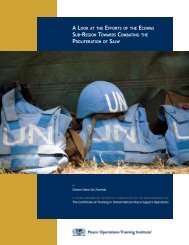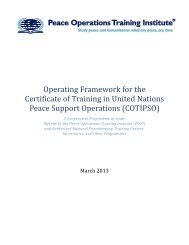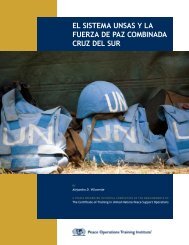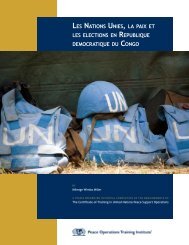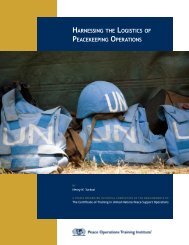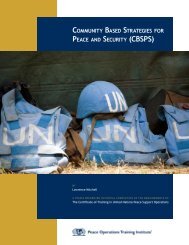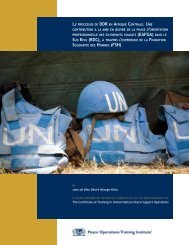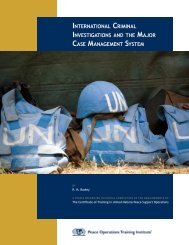money laundering best practices, lessons to be learnt and steps
money laundering best practices, lessons to be learnt and steps
money laundering best practices, lessons to be learnt and steps
- No tags were found...
Create successful ePaper yourself
Turn your PDF publications into a flip-book with our unique Google optimized e-Paper software.
long as the burden was carried by general public, or, as perceived, by nobody in particular(somebody else).Contemplating on this, one cannot miss that the corruption levels were very high in formerYugoslavia. Also, as it was an one party system there were little regional gods that were allowed<strong>to</strong> tailor the local economic investments, spatial plans, education etc in accordance with their ownideas, needs, interests, <strong>and</strong> give <strong>be</strong>neficial contracts <strong>to</strong> “friendly companies”. These officials, whowere willing <strong>to</strong> assist the good people with their problems for voluntary contributions, had noproblem depositing the same contributions in<strong>to</strong> banks with no unpleasant questions <strong>be</strong>ing asked.All these were, <strong>and</strong> still are, some of the possibilities for <strong>money</strong> <strong>laundering</strong> that create significantnavigating space for a successful, what we might call a “moderate size” <strong>money</strong> launderer.Unfortunately with the collapse of socialism, i.e. planned economy, <strong>and</strong> transition <strong>to</strong> marketeconomy during the time of war there was, <strong>and</strong> still is, a big black hole opened in privatizationprocess which has <strong>be</strong>en ongoing for the last 13 years, <strong>and</strong> will still <strong>be</strong> a very dubious area no<strong>to</strong>nly in former Yugoslav republics but in all former eastern block countries for many years <strong>to</strong>come. Transition is <strong>be</strong>neficial not only for <strong>money</strong> launderers but for any criminal with cashintensive business who is looking for a quick way <strong>to</strong> <strong>be</strong>come a legal <strong>and</strong> reputable citizen. Inalmost all countries created after the fall of Yugoslavia there were numerous privatization auditswith very limited findings. Only in Croatia we are still facing sc<strong>and</strong>als about privatization ofhotels <strong>and</strong> companies that were sold for decreased value <strong>and</strong> very few of them continuedoperating. In most of the cases workers were fired <strong>and</strong> assets of the company were sold with highprofits. Such situation significantly ruined the production part of the economy <strong>and</strong> created highunemployment of middle-aged workers which was, <strong>and</strong> still is, an additional burden for socialservices.MONEY LAUNDERING SITUATION IN CROATIARepublic of Croatia is positioned on the west part of the Balkan Peninsula <strong>and</strong> is a part of the socalled “Balkan route”. The country’s economy was devastated during the war with large num<strong>be</strong>rof fac<strong>to</strong>ries remaining on the occupied terri<strong>to</strong>ry. Large part of Croatian border lines are so calledsoft borders with former Yugoslav republics, which provides a wide range of opportunities <strong>to</strong>“entrepreneurs”. There is also a long sea border with 5 international cargo ports, which putsCroatia in a position open <strong>to</strong> world smuggling chains.Money Laundering Best Practices,Lessons <strong>to</strong> <strong>be</strong> Learnt in the Balkan RegionWritten by Tamara BrneticPage 11 of 58




